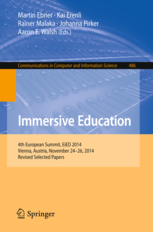Our research about a case study of using Learning Analytics for MOOCs got published with the title „Clustering patterns of engagement in Massive Open Online Courses (MOOCs): the use of learning analytics to reveal student categories„.
Abstract:
Massive Open Online Courses (MOOCs) are remote courses that excel in their students’ heterogeneity and quantity. Due to the peculiarity of being massiveness, the large datasets generated by MOOC platforms require advanced tools and techniques to reveal hidden patterns for purposes of enhancing learning and educational behaviors. This publication offers a research study on using clustering as one of these techniques to portray learners’ engagement in MOOCs. It utilizes Learning Analytics techniques to investigate an offered MOOC by Graz University of Technology held for undergraduates. The authors mainly seek to classify students into appropriate categories based on their level of engagement. Clusters afterward are compared with another classical scheme (Cryer’s scheme of Elton) for further examination and comparison. The final results of this study show that extrinsic factors are not enough to make students highly committed to the MOOC, yet, adding intrinsic factors are recommended to improve future MOOCs.
Reference: Khalil, M., Ebner, M. (2016) Clustering patterns of engagement in Massive Open Online Courses (MOOCs): the use of learning analytics to reveal student categories. Journal of Computing in Higher Education. pp. 1-19. https://dx.doi.org/10.1007/s12528-016-9126-9

